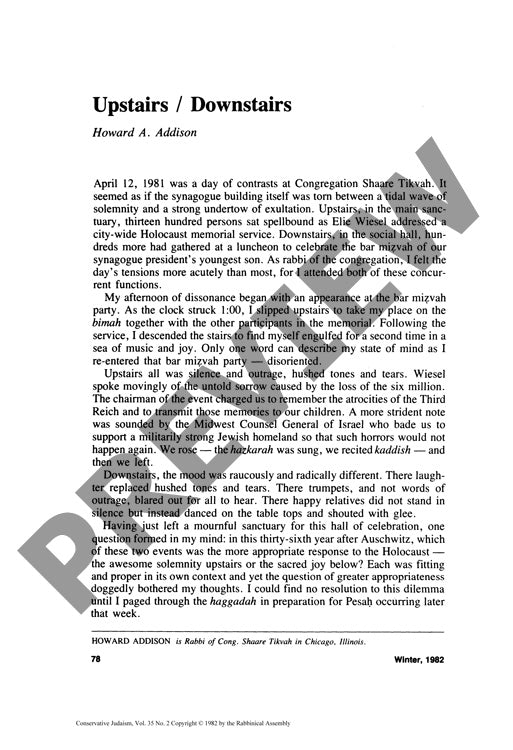Upstairs Downstairs
Couldn't load pickup availability
This reflective essay examines the theological and communal tensions within contemporary Jewish responses to the Holocaust through an ethnographic analysis of concurrent events at Congregation Shaare Tikvah on April 12, 1981. The author employs participant observation methodology, documenting his dual attendance at a Holocaust memorial service featuring Elie Wiesel in the synagogue's main sanctuary and a bar mitzvah celebration in the basement social hall. The study utilizes textual analysis of the Passover Haggadah as an interpretive framework for understanding appropriate Jewish responses to historical trauma. The research reveals a fundamental dichotomy between commemorative solemnity and celebratory joy as competing modes of Holocaust remembrance. The author's analysis of the Haggadah's treatment of Egyptian enslavement provides a historical precedent that emphasizes redemption over suffering, suggesting that Jewish tradition prioritizes liberation narratives over traumatic memory. The study concludes that contemporary Jewish communities have inverted this traditional hierarchy, privileging bonds of shared suffering over bonds of sacred joy. The author advocates for a balanced approach that maintains Holocaust remembrance while simultaneously cultivating positive Jewish experiences through enhanced religious education, innovative worship practices, and community outreach, arguing that physical survival alone proves insufficient for meaningful Jewish continuity.

More Information
-
Physical Description
-
Publication Information
Published 1982
ISBN
-
Publication Credits
Howard Addison

